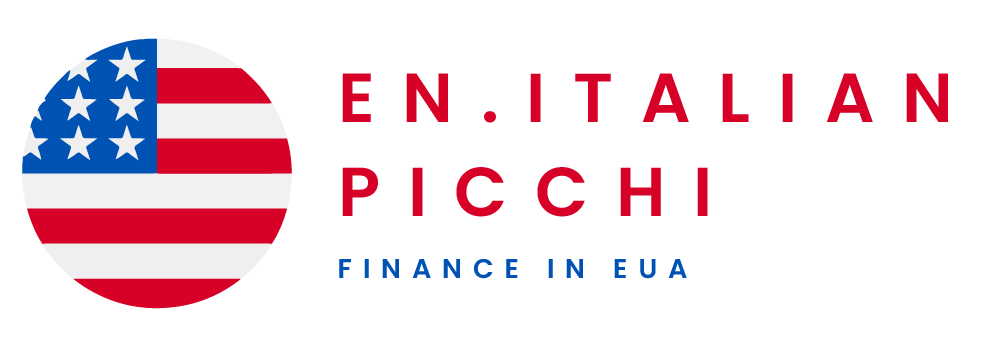Have you ever thought about how the loan type you pick can change your financial path? Unsecured and secured loans are two main types, each with its own impact on your borrowing power and risk. This article will help you understand the differences between these loans, their benefits, and drawbacks.
Knowing about unsecured and secured loans can help you make better financial choices. It’s all about finding the right loan for your situation.
Understanding the Basics of Loans
Loans are key financial tools that help people and businesses get through tough money times. Knowing about different loans helps find the right one for your needs. In the U.S., there are many loans like personal, mortgage, auto, and student loans, each for a special reason.
It’s important to know about interest rates, loan terms, and how to pay back the loan. Interest rates affect how much you’ll pay back, and loan terms show how long you have to pay it off. Lenders look at your financial situation to decide if you can get a loan.
Getting a loan involves applying, being checked by the lender, and then getting the money. When you apply, you share your financial info like income and credit history. The lender uses this to figure out the risk. If you’re approved, you get the loan money to use as you planned.
Knowing the basics of loans is key to making smart financial choices. Understanding the differences between loans helps you choose wisely. Whether it’s a personal loan or something else, knowing what you’re getting into is crucial for borrowing responsibly.
| Loan Type | Purpose | Repayment Terms | Typical Interest Rates |
|---|---|---|---|
| Personal Loans | General purposes, debt consolidation | 2 to 7 years | 5% – 36% |
| Mortgages | Home purchase | 15 to 30 years | 3% – 5% |
| Auto Loans | Vehicle purchase | 3 to 7 years | 3% – 10% |
| Student Loans | Education financing | 10 to 30 years | 3% – 8% |
By really getting these basics, you can start your financial journey with more confidence and understanding.
Key Differences Between Unsecured and Secured Loans
It’s important to know the difference between secured and unsecured credit. Secured loans need collateral, like a home or car. This is why mortgages and auto loans are examples. On the other hand, unsecured loans don’t need collateral. Personal loans and credit cards fall into this category.
Secured loans have lower interest rates because lenders have less risk. But, unsecured loans have higher rates because lenders face more risk. If you can’t pay back a secured loan, you might lose your collateral. But, failing to pay an unsecured loan can hurt your credit score a lot.
The table below outlines key distinctions between secured and unsecured loans:
| Feature | Secured Loans | Unsecured Loans |
|---|---|---|
| Collateral Requirement | Yes | No |
| Examples | Mortgages, Auto Loans | Personal Loans, Credit Cards |
| Interest Rates | Typically lower | Usually higher |
| Risk of Default | Collateral can be repossessed | Credit score damage and collections |
Advantages of Unsecured Loans
Unsecured loans offer many benefits to borrowers. One key advantage is that you don’t need to put up collateral. This is great for people who don’t have valuable assets to offer. It makes it easier for them to get the money they need.
These loans are also very flexible. You can use the money for many things, like fixing up your home or paying off debts. You don’t have to follow strict rules set by lenders.
Getting an unsecured loan is often quicker than getting a secured one. Lenders can make decisions fast, which means you can get the money you need quickly. This is a big plus for people in urgent financial situations.
How good your credit score is also matters. If you have a good credit history, you might get better terms and lower interest rates. So, if you’ve managed your finances well, you could really benefit from an unsecured loan.
Disadvantages of Unsecured Loans
Unsecured loans have several downsides that borrowers need to think about. One big issue is the high interest rates. These rates are higher because there’s no collateral. This makes lenders more cautious and sets stricter rules for borrowers.
Another problem is the tough credit checks for unsecured loans. People with poor credit often can’t get these loans. Those with good credit get better deals, but others are left out.
Unsecured loans also mean bigger monthly payments. This can be tough on a person’s budget. If you can’t pay back, it can hurt your credit score and even lead to legal trouble. It’s important to know you can afford the payments before you borrow.
| Disadvantage | Impact on Borrower |
|---|---|
| Higher Interest Rates | Increased monthly payments |
| Stricter Credit Requirements | Limited borrowing options for those with poor credit |
| Larger Monthly Payments | Financial strain on monthly budgets |
| Negative Credit Effects | Long-term impacts on credit scores and financial standing |
Advantages of Secured Loans
Secured loans have many benefits that make them attractive to borrowers. One major advantage is the lower interest rates. Since these loans use collateral, lenders see less risk. This leads to better terms for the borrower.
Another big plus is the chance to borrow more money. You can use the value of your home or car as collateral. This allows for more financial freedom when making big purchases or investments.
Secured loans can also be easier to get, even with lower credit scores. Unlike unsecured loans, collateral can help overlook credit issues. This helps many people who might find it hard to get loans otherwise.
In summary, secured loans offer lower costs and more access to funds. When comparing loan types, considering these benefits can help decide if secured loans meet your needs.
Disadvantages of Secured Loans
Secured loans can be risky because they involve collateral. If you can’t pay back the loan, the lender can take your asset. This could mean losing something valuable, causing stress and financial trouble.
Getting a secured loan can also take a long time. You need to provide a lot of financial information and proof of your asset’s value. This makes it harder to get the money you need.
Secured loans can also become a big problem. The need to pay back the loan can be overwhelming. It might make you feel like you need to borrow more to cover what you already owe.
| Disadvantages | Description |
|---|---|
| Risk of Asset Loss | Losing collateral if unable to make payments affects emotional and financial well-being. |
| Lengthy Approval Process | Comprehensive documentation requirements can delay access to funds. |
| Ongoing Financial Burden | Repayment obligations can accumulate, leading to further borrowing. |
Who Should Consider Unsecured Loans?
Unsecured loans are great for certain people. They are perfect for those without collateral. If you need money fast for emergencies, like medical bills or home repairs, unsecured loans are a good choice.
Having a good credit score helps a lot when looking for unsecured loans. A strong credit history can lead to lower interest rates. This makes the loan more affordable. If you need a small amount of money for personal use, unsecured loans are quick and easy to get.
Before getting an unsecured loan, think about your financial situation. There are risks like high-interest rates and how it can affect your credit score. If you don’t want to risk losing your assets, unsecured loans might be a safer option for you.
Who Should Consider Secured Loans?
Secured loans are great for people with valuable assets they can use as collateral. They offer a chance to borrow more money at lower interest rates. This makes them perfect for those with big financial needs.
Those with steady incomes and strong repayment plans might find these loans helpful. They can use their assets, like homes or cars, to get funding. This also helps those with poor credit scores, as the asset lowers the lender’s risk.
| Borrower Characteristics | Secured Loan Benefits |
|---|---|
| Individuals with high-value assets | Access to larger loan amounts |
| Borrowers seeking lower interest rates | More favorable lending terms |
| Those with a stable income | Improved approval chances |
| People with less-than-perfect credit | Better access to funds due to collateral |
Before getting a secured loan, it’s important to think about your finances. You need to know the risks of using your assets as collateral. Make sure you can pay back the loan to avoid any problems.
Tips for Choosing Between Unsecured and Secured Loans
Choosing between unsecured and secured loans needs careful thought. First, check your credit score. It affects the loans you can get and the interest rates. People with good credit scores might get better deals on unsecured loans. Those with lower scores might find secured loans more helpful.
How fast you need the money also matters. Unsecured loans are quick, which is great for emergencies. Secured loans take longer but can offer more money for big purchases or investments.
Think about what you own. If you have valuable assets, using them for a secured loan can get you better terms. But, remember, there’s a risk of losing the asset if you can’t pay back the loan.
Do your homework before making a decision. Get quotes from different lenders to understand the rates, terms, and fees of both loans. Getting pre-approved can also help you see what financing options are available.
| Factor | Unsecured Loans | Secured Loans |
|---|---|---|
| Credit Score Impact | Less favorable rates for low scores | Can be obtained with lower scores using collateral |
| Processing Time | Quick approval and funding | Longer approval process |
| Loan Amount | Generally smaller | Larger amounts available |
| Risk of Asset Loss | No risk of losing assets | Asset may be seized in default |
Conclusion: Making the Right Choice
In the world of Unsecured vs. Secured Loans, knowing the differences is key. Unsecured loans don’t need collateral and are great for quick access to money. But, they might have higher interest rates and strict credit checks.
Secured loans, on the other hand, use valuable assets as collateral. They often have lower interest rates and better terms. But, if you miss payments, you could lose those assets.
Choosing the right loan depends on your financial situation, how much risk you can take, and your goals. By looking at the good and bad of each loan, you can pick what’s best for you. Making a smart choice helps your financial health and avoids future problems.
So, whether you choose an unsecured loan for quick cash or a secured loan for stability, do your homework. Knowing what each loan means is crucial for long-term financial success.




